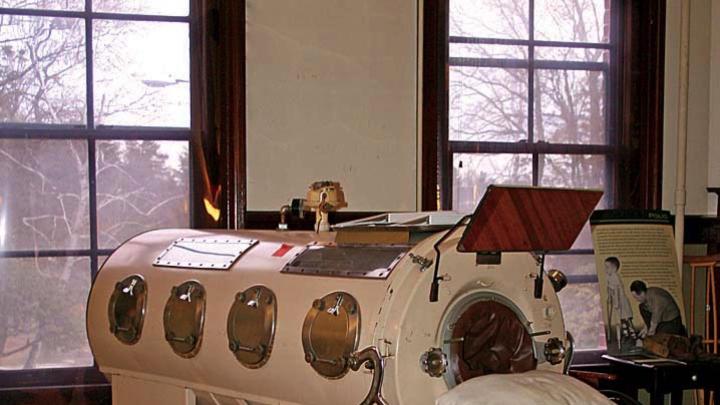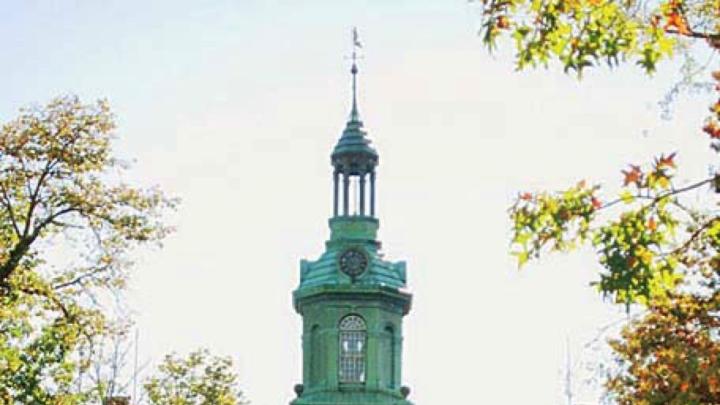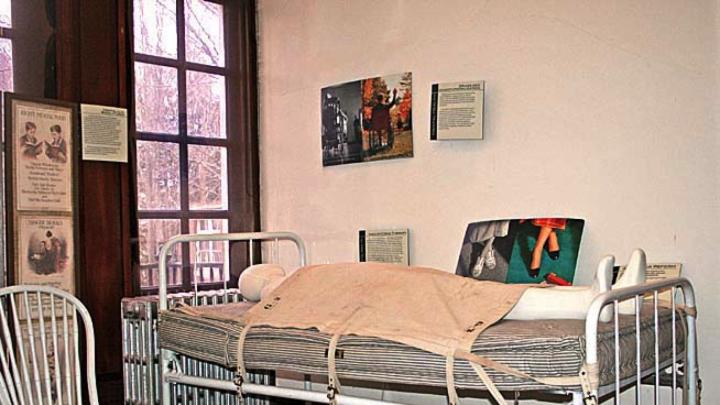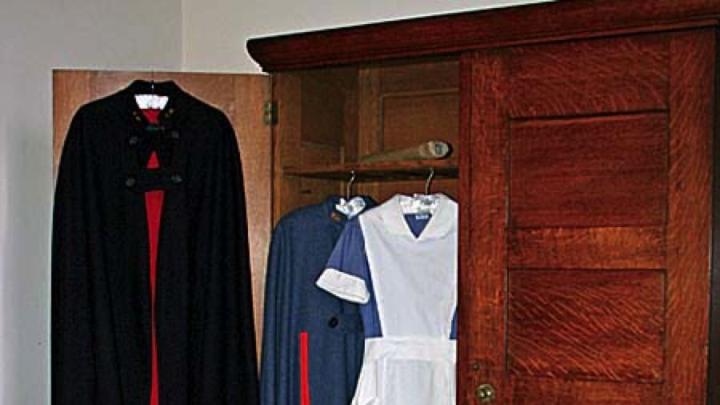The Public Health Museum in Tewksbury Hospital’s old administration building (a national historic site), helps illustrate efforts to combat some of the deadliest diseases in modern American history.
There’s an iron lung, made by J.H. Emerson Co., of Cambridge, used to treat polio. Nearby are lung X-rays lit to reveal tuberculosis (TB), and a metal sputum cup once carried by a patient to decrease the spread of infection. A case holds bifurcated needles to administer smallpox vaccines and an antique portable autoclave for on-site sanitation. In another room, posters and documents explain syphilis and commemorate William Augustus Hinton, B.S. 1905, the first black professor at Harvard Medical School, for his pioneering research, including his 1936 medical textbook Syphilis and Its Treatment.
Effective vaccines “mean that parents no longer have to worry about their children dying—or living their lives in iron lungs—because of polio, or worry about smallpox—a disease that killed more people in the past 200 years than any infection other than tuberculosis—because smallpox has been eradicated,” says Alfred DeMaria Jr. ’73, secretary of the museum’s board of directors. (He is also the state epidemiologist and medical director of the Bureau of Infectious Disease and Laboratory Sciences in the Massachusetts Department of Public Health.) “Generations growing up after these infections were controlled do not have the same reverence for vaccines that earlier generations had,” he adds. “We hope that a visit opens a window on the success of prevention.” (The museum offers expanded hours, activities, and lectures during National Public Health Week, April 3-9.)
What’s now Tewksbury Hospital opened in 1854 as a state almshouse, and was soon admitting the “pauper insane.” It became a full-scale medical facility known for treating smallpox, typhoid fever, diphtheria, and other scourges of the day; a TB sanatorium was built in 1899.
The museum also offers walking tours of the buildings and grounds, and exhibits on patented “remedies,” nursing education, dentistry (a traveling dental chair, circa 1890, proves how far that field has come), and former mental-health treatments. The hospital bed with canvas restraints held patients undergoing insulin-coma therapy, an ineffectual and dangerous practice of dosing people with insulin, then reviving them with glucose. It was discontinued in the United States by the late 1960s, board member Linda Perry said during a recent tour. Pointing to a photograph of “cold-water baths,” she added, “They were done, basically, to quiet the more violent patients. A retired nurse who visited said that sometimes they were [immersed] for 18 to 24 hours.” Upon leaving, another visitor observed, “I’m very glad to be living in the twenty-first century.”












